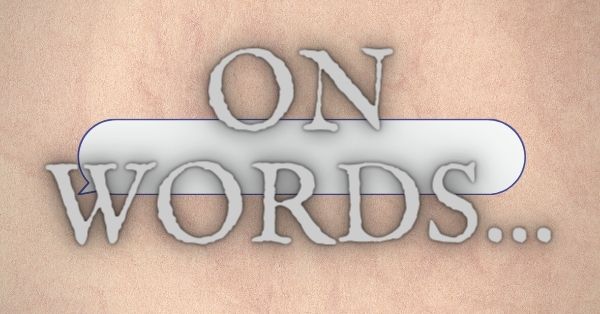
Words matter. And it weighs a lot heavier than we suppose that it would so choosing the proper vocabulary is most crucial – especially for writers; works are immortalized simply by words alone. Word choice does matter and there are two concepts that must always come to mind: syntax and semantics.
For clarification, recap, or even an introduction for those who have never came across these terms nor are familiar with the idea, semantics is the study of meaning or the study of linguistic by classifying and examining changes in meaning and form, according to Dictionary.com. And syntax is the study of the rules for the formation of grammatical sentences and phrases from words in a language; these are the rules or patterns.
Language contains rules and patterns.
Even poetry follows some kind of rules, even though it doesn’t seem like they do. The style bends some of the traditional rules to create vivid imagery in a stylized manner but it does not negate any of these rules.
Some poetry are most often seen in the play on words that marketing and branding strategists use when trying to create a brand. They manipulate the words or even the usage of the words to create a full image in such a short phrase, a catchphrase perse or a tag.
Photo by Bruno Martins on Unsplash

For example, I go online and see a lot of food accounts with bios claiming that they are “foodies”. We will give it to them since the blog is pretty much about food and almost nothing else. However, if you are trying the same sort of dish from different restaurants, wouldn’t that make you some sort of “connoisseur” more than a “foodie”.
I call my sister a burger connoisseur because whenever we try out a new restaurant she tries out the burger to compare it with the other restaurants that we have tried and determine if it is “tastes good” or if the restaurant is a “good restaurant”. That would be her basis for coming back.
I did some sort of informal survey asking my friends what comes to mind when they hear the word foodie. The majority of them answered that it is the person that tries on DIFFERENT KINDS OF FOOD and would go out of the way to look for new dishes to satisfy their palette. So, I further asked whether a connoisseur would be that one person that specializes in a certain something.
They all agreed to that statement.
Yet, the word foodie is a lot easier and catchier to say than connoisseur; rolls off the tongue a lot smoother, that’s why it is more often used.
Photo by Pablo Merchán Montes on Unsplash

Here is what I am trying to say: words create an image, and they symbolize and signify this image. That is why they were created. And rules were created and born out of pre-existing patterns because they allow these words to be properly understood on how they are used.
Words are crucial. In this context – foodie vs connoisseur – its interchanging would not matter too much as its weight on the words is minimal if not consequential especially when used in a casual manner.
But it more than matters between definitely versus maybe. It can be a matter of life and death. A simple word can change the life of some, it can change a whole narrative and perspective. Ideologies can be altered by a simple mistake in the usage of words.
In the age where speech is available for almost everyone, we must be more than diligent in how we talk and in what we say and write. Especially on the internet, what we bring out into the world will forever be out in the world. There is no more taking back what we have written; the delete function will not necessarily remove what has been published.
Words can hurt. Words can heal. Words can bring people together and words can bring people apart.
I am not saying that we must mince our words so that we won’t affect anyone, on the contrary: we must know EXACTLY what the words we use MEAN and use it ACCORDINGLY. If something is UGLY then it must be ugly. We also must learn how to support our statement: why is it ugly? Could it possibly have been beautiful in the eyes of the other? What made it ugly?
If its BAD, then what made it bad? Is it subjectively or objectively bad? Could it have been good? Or could it have been worse?
We just need to be a little bit more aware and careful.
Photo by Angelina Litvin on Unsplash




